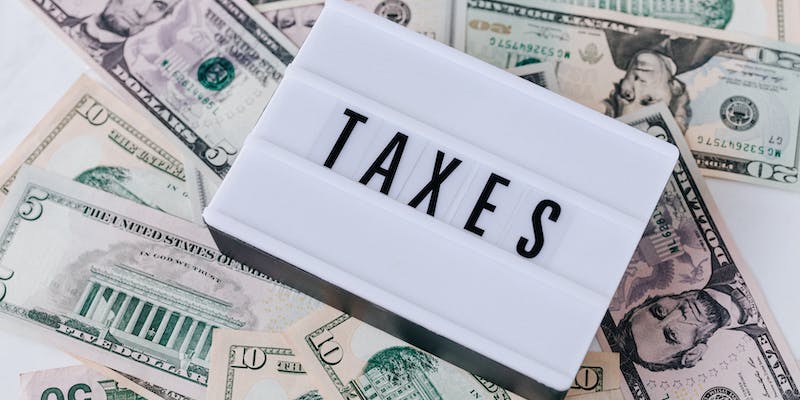Iowa is a beautiful state known for its vast cornfields, friendly people, and strong sense of community. If you're living in the Hawkeye State or planning to move there, it's essential to understand the ins and outs of Iowa state taxes. This article is your comprehensive guide to navigating the world of Iowa state taxes, ensuring you stay in compliance while making the most of your financial situation.
What to Know About Iowa Income Taxes?
Before delving into the specifics, let's grasp the basics of Iowa's tax structure. Iowa imposes various types of taxes, including income tax, sales tax, property tax, and more.
Individual Income Tax Rates
Iowa follows a progressive income tax system, which means that the tax rate you pay depends on your income level. In the past, Iowa had nine different tax brackets with varying rates. The rates ranged from 0.33% for those with the lowest income to 8.53% for the highest earners. However, it's crucial to note that tax rates can change over time due to legislative decisions or economic factors.
Standard Deductions
In Iowa, the standard deduction is a set amount of income that is not subject to state income tax. For the 2022 tax year, the standard deduction amounts were as follows:
Single Filers – Single individuals could claim a standard deduction of $2,050.
Joint Filers – Married couples filing jointly had a standard deduction of $5,000.
It's important to note that if you are 65 years of age or older or if you are blind, you may be eligible for additional deductions. These deductions can further reduce your taxable income, potentially lowering your overall tax liability.
Keep in mind that tax laws can change over time, so it's a good practice to check for any updates or revisions to standard deduction amounts with the Iowa Department of Revenue or a qualified tax advisor, especially when preparing your tax returns. This will ensure that you are taking advantage of all the deductions available to you.
Exemptions
In Iowa, taxpayers can claim personal exemptions to reduce their taxable income. For the 2022 tax year, you could claim an exemption for yourself and any dependents you had. Each exemption you claimed had the effect of reducing your taxable income. Please note that tax laws can change, and the availability and value of exemptions may vary from year to year.
Sales and Property Taxes in Iowa
Let's have a look at sales and property taxes in Iowa.

State Sales Tax Rate
Iowa has a statewide sales tax rate of 6%. This rate applies to most tangible personal property, but it's crucial to be aware that certain items are exempt from sales tax. Common exemptions include groceries, prescription drugs, and medical equipment.
Local Sales Tax
In addition to the state sales tax, Iowa allows local governments to impose their sales tax. This means that the total sales tax rate you pay may vary depending on where you live. Before making a purchase, check the local sales tax rate to ensure you budget accordingly.
Sales Tax Holidays
Iowa occasionally offers sales tax holidays where certain items are exempt from sales tax for a limited time. These holidays often coincide with back-to-school shopping or energy-efficient appliance purchases, so keep an eye on the schedule to take advantage of potential savings.
Assessment and Valuation
Property taxes in Iowa are primarily based on the value of the property you own. Local assessors determine the value, and it's crucial to understand the assessment process. The assessed value is then used to calculate your property tax bill.
Homestead Tax Credit
Iowa offers a Homestead Tax Credit, which can reduce the property tax burden for homeowners. This credit is intended to help Iowans stay in their homes and can provide substantial savings.
Tax Credits and Deductions
Here, we have compiled some of the information regarding tax credits and deductions.
Tax Credits
Iowa offers several tax credits, such as the Earned Income Tax Credit (EITC) and Child and Dependent Care Credit, to help lower-income individuals and families reduce their tax liability.
Deductions
In addition to tax credits, Iowa residents can also take advantage of various deductions. Some common deductions include student loan interest, educator expenses, and contributions to a College Savings Iowa 529 plan.
Filing Your Iowa State Taxes
Filing your Iowa state taxes can seem like a complex task, but it doesn't have to be. In this section, we'll cover some key aspects to help you navigate the process smoothly.

Filing Deadlines
Iowa's state tax filing deadline typically aligns with the federal tax filing deadline, which is April 15th. However, make sure to verify the deadline each year, as it may change.
E-Filing
The Iowa Department of Revenue encourages taxpayers to file electronically. E-filing is convenient and secure, often resulting in quicker processing and refunds.
Tax Preparation Software
Consider using tax preparation software or hiring a tax professional to ensure your return is accurate and filed on time. This can help you maximize your deductions and credits while minimizing any potential errors.
Conclusion
Understanding Iowa state taxes is essential for residents and businesses alike. By staying informed about tax rates, deductions, and credits, you can minimize your tax liability and ensure compliance with state tax laws. Whether you're a new Iowa resident or a long-time Hawkeye, keeping your finances in order will help you make the most of your time in this welcoming state.
Remember that the tax landscape can change, so it's always a good idea to consult with a tax professional or the Iowa Department of Revenue for the most current information and personalized advice. Iowa's tax laws are designed to support residents and businesses while funding essential state services, and by understanding them, you can make the most of your financial situation in the Hawkeye State.




